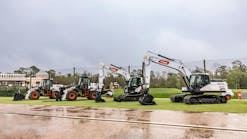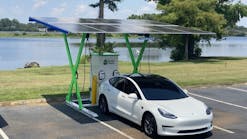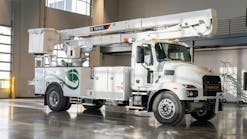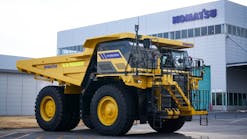Mass production of vehicles powered by hydrogen-fueled internal combustion engines is five years out, according to a study from Interact Analysis.
The organization says that although the costs of the engine and the vehicles themselves are relatively low, operating costs are currently high, making the total cost of ownership (TCO) unfavorable. The group also cites the lack of refueling infrastructure as a hurdle to acceptance of hydrogen compared with fuel cell and battery electric alternatives.
Hydrogen ICE vehicles require a series of minor changes compared with traditional ICE, according to the group, but the total cost of manufacturing the vehicle soars. The greater complexity increases the potential risks once the vehicle is in mass production.
Hydrogen ICE vehicles are most attractive to those companies who are most climate aware, or where battery electric alternatives are either unavailable for a particular vehicle or not fit for purpose. Without either of these catalysts for adoption, uptake of hydrogen ICE vehicles is likely to remain low in the short term. Off-road vehicles are perhaps best suited to this technology since battery electric and fuel cell alternatives face greater infrastructure challenges in off-road environments.
TCO for hydrogen engines
The total cost of a hydrogen engine is only slightly higher than that of a diesel engine, according to the group. But the cost of a hydrogen tank for a class 8 heavy truck is around $76,000, a figure far greater than that of a diesel equivalent.
Although the unit price of a hydrogen-powered vehicle is still less than an electric alternative, the average cost of fuel per mile is higher. Interact Analysis predicts that the cost of hydrogen will reduce significantly over time and, if it continues to fall at pace, it could become more competitive across a wider range of applications in the future.
Although maintenance costs for hydrogen vehicles will be similar to those of other vehicles, fuel costs for hydrogen vehicles mean the TCO will be worse than for diesel and battery electric alternatives.
“The number of registered H2 ICE vehicles is forecast to grow to 58,000 in 2030,” said Jamie Fox, principal analyst, in a statement. “Covering all on road and off-road vehicles (including trains, agricultural equipment, trucks and passenger cars), this figure is set to see significant growth post-2030, with uptake of H2 ICE technology projected to soar to more than 400,000 shipments by 2040.
“Due to unfavorable TCO and high fuel costs, H2 ICE vehicles are unlikely to become the market leader,” he said. “Despite the many environmental benefits to the use of hydrogen vehicles, for mass adoption to occur the refueling infrastructure required must be developed and customer payback improved. We are still seeing many limitations to refueling infrastructure for battery electric vehicles so it is unlikely that we will see a significant amount of change in the H2 infrastructure for many years.”
Source: Interact Analysis






